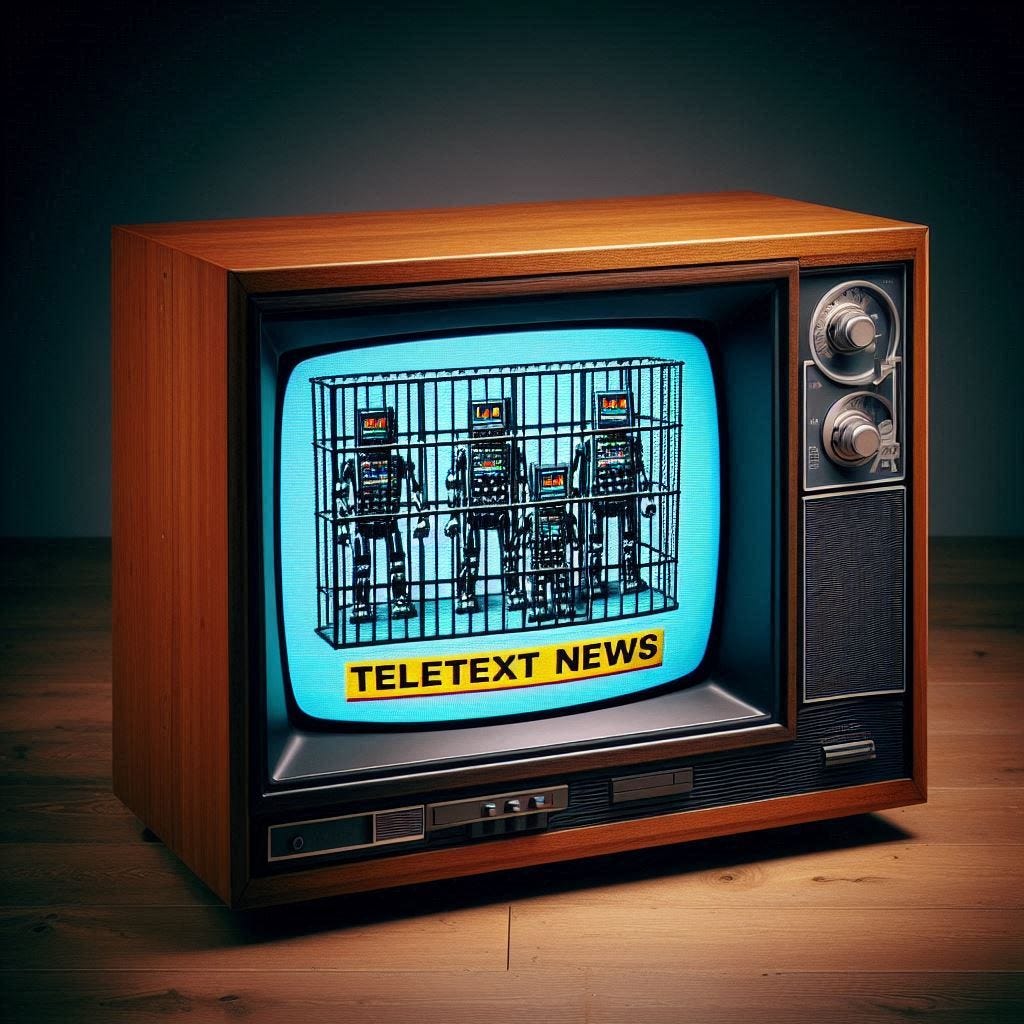Art is in the constraints
On low-resolution television, haiku, and the importance of working within limitations even in an age of blue-sky potential
A former BBC editor, reminiscing about working on the organization's "Ceefax" teletext service, says this of the transition to delivering news content on the Internet in a hybrid model with teletext: "Because we now had to service audiences for both Ceefax and the website, the top four paragraphs of a web story still had to be totally self-contained. In other words, all the relevant facts -- with balance -- had to be in there, just as they always had been. Writers then had to write a fifth paragraph of context before expanding the story on the website."
■ As trivial as that may sound, it speaks to the way that constraints cause us to create memorable things. When an artist selects a medium or a style -- pointillism, or a capella singing, or black-and-white photography, or haiku -- the constraint enforces discipline, which in turn often instigates deeper creativity than saying "anything goes".
■ That's one of the characteristics so often lost when people turn to digital media today: There's no inherent limit to the length of your podcast series, your Substack newsletter, or your YouTube channel. Unbound by artificial constraints, people feel like they have to go on and on. The constraints are what generate real artistic flair.
■ Without those constraints, people tend to optimize around low-input, high-output formulas, like the tiresome "I'm a ___, here's why ___" structure of news headlines seen everywhere. Those headlines used to be constrained by physical space on the printed page and thus had to convey lots of information in the equivalent of a few bytes; now, they're written as long as needed in order to tick the boxes that boost their search-engine performance.
■ It can be hard to appreciate the power of limitations in a time when most of the talk is about the blue-sky potential of technologies like artificial intelligence, but human intelligence is geared towards problem-solving. We're often at our best not when faced with a blank canvas, but rather with a puzzle to figure out. Constraints (like the character count enforced by a tool like teletext) lead to more colorful work.



